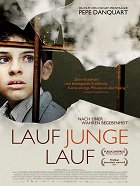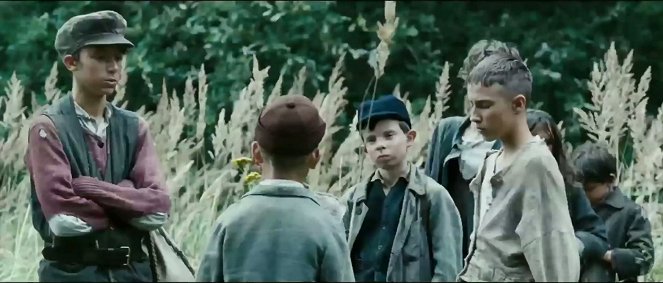Directed by:
Pepe DanquartScreenplay:
Heinrich HaddingCinematography:
Daniel GottschalkComposer:
Stéphane MouchaCast:
Andrzej Tkacz, Kamil Tkacz, Elisabeth Duda, Itay Tiran, Łukasz Gajdzis, Przemyslaw Sadowski, Jeanette Hain, Rainer Bock, Grazyna Szapolowska (more)Plots(1)
Warsaw 1942. The Second World War rages throughout Europe and Polish Jews are confined to life in harsh ghettos. Srulik, an eight year old boy, manages to escape from the Warsaw ghetto where he is held captive and flees into the nearby forest. Managing to live undetected in the forest he evades the Nazi soldiers sent to find him and soon finds his way onto a Polish farm where he must survive and avoid capture. Escape From Warsaw is a true story of courage, survival and bravery against the backdrop of the horrors of WWII. (High Fliers Films)
(more)Reviews (2)
The stories from World War II still amaze and surprise. And it doesn’t really matter how many I’ve seen and how many were shot by various directors around the world. They still provide a certain testimony of the time back then, which will never disappear from the history of the human race. Run Boy Run is the story of a boy who was dealt the worst cards in life from perhaps all possible and impossible directions. But each time he got up and carried on, which is admirable. At times, the film reminded me of the Soviet brutality of Come and See. The only difference is that this film is not as brutal, which is not so surprising, because Come and See goes beyond all possible film limits with its naturalism. But this film is a story worth seeing. And the final scene will make the audience smile, at least, which is sometimes needed in the stories from the Second World War.
()
I guess my highest praise for my truly unfavorite "children in wartime" subgenre is that it didn't offend me. Even though here, too, the kid is cute, the times are bad, the Germans are blabla and the bread is hard, still I didn't feel the need to swallow a bullet with this one, as with the contemporaries in striped pyjamas or with stolen books. Compared to them, the fugitive boy has an undeniable dramaturgical advantage in that he's constantly forced to change places, and thus the film is always visibly moving somewhere (though basically, for most of the film, the protagonist is just wandering around). However, the direction here has quite significant limitations, which bubble to the surface especially in the moments when the filmmakers try to imply a longer time gap between scene A and scene B, because the relationships between the central boy and his community are always defined by the opening scene of their encounter and do not develop again for the rest of, say, the six months that the boy spends with the character. Sure, that doesn't make the film last three and a half hours, and thank goodness for that, but even so, this story feels like a stump right up to the end.
()

